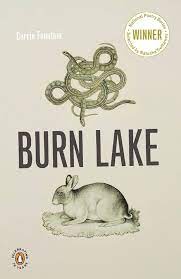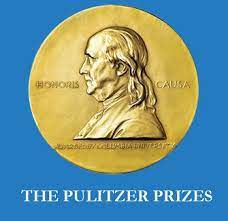Every year, the National Poetry Series out of Princeton (I hear they have a college) stages an open competition for outstanding poetry manuscripts. To enter, it costs 30 bucks, and the submission period takes place from New Year’s Day to the end of February.
Though I’ve never entered, one thing that I like about the contest is that it is judged blindly. Top poets, the final readers, don’t know who wrote what. Submitting poets are not allowed to provide biographical info, a table of contents, an acknowledgments page, nothing.
St. Billy of Collins says this about the National Poetry Series: “I know of no program more vital to the launching of a poet’s career than The National Poetry Series. For over 30 years, 5 poets annually have enjoyed the immense benefit of having their manuscripts transformed into handsome books by some of the most prestigious publishers in the country. Measured by these hard, practical results alone, the Series deserves the support of every devotee of poetry. My own Questions About Angels, selected by Edward Hirsch in 1990, marked the true beginning of my public life in poetry.”
Which brings me to the reason I am writing this: Yesterday I checked Carrie Fountain’s Burn Lake out of the library and am looking forward to reading it this week. It had a big stamp on the cover that read “WINNER, National Poetry Series, Selected by Natasha Trethewey,” which made me curious (and you already know I’m the curious type).
As is true with every poetry book I read, I first count the number of poems (here it’s 48) and then look at the acknowledgments page for marketing possibilities (here it includes AGNI, Ascent, Borderlands Texas Poetry Review, Cave Wall, Cimarron Review, Crazy Horse, cream city review, Hayden’s Ferry Review, Marlboro Review, The Missouri Review, Southwestern American Review, Swink, and The Texas Observer).
Finally, I look at the “Thanks” entries. In the case of Carrie Fountain’s once-anonymous manuscript, thanks were extended “for help with this manuscript” to Marie Howe (!) and Naomi Shihab Nye (!). In Nye’s case, Fountain wrote, “My deepest gratitude to my teacher and friend Naomi Nye.”
Gulp. This once-anonymous manuscript forwarded into an open competition clearly had some high-octane help! Which makes me wonder, “Outside of signing up for an MFA, which is tough to do when you have a FTJ (full-time job), what can I do to improve my new poetry manuscript’s chances for the big-time?”
Such a rhetorical question! I haven’t signed on for any teachers, is what I can do, and should do if I decide to pony up 30 bucks for the 2019 competition and want to give it a Kentucky Derby’s chance (I’ll take the outside post, even) by having some very cool poets like Marie and/or Naomi give feedback first.
So this is an open letter to you, Marie and Naomi. No, it’s not anonymous, but I know that neither of you will be readers for the 2019 competition, so it’s all good. No worries.
Drop me a line! Take in a poem or two (I know you’re busy, so one or two will do)! Teach me things!
Winsomely,
Me



